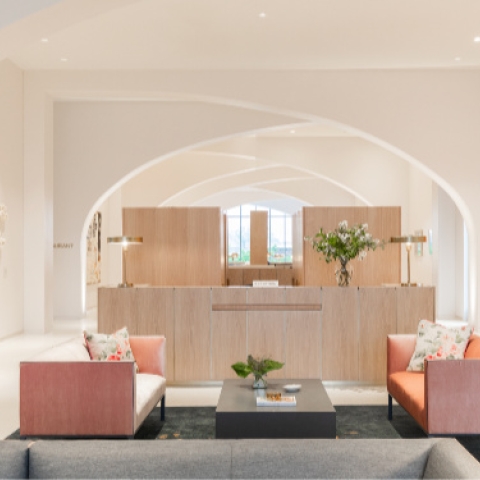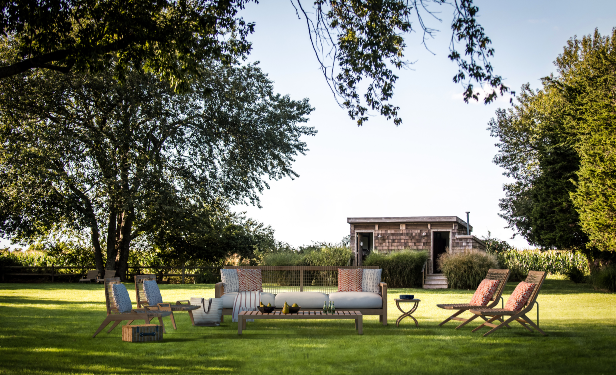7 Hoteliers on Why Boutique Hotels are the Immediate Future of Meetings

As corporate marketing teams look ahead to begin planning for events for late 2020 and into 2021, bigger isn’t better: The theme that seems to be emerging is smaller, more intimate gatherings at a local level will help companies ease back into events.
While the hotel industry was among the hardest hit by the global pandemic, it’s the smaller, boutique hotels that may be among the first to bounce back, with fewer staff to hire back and fewer rooms to fill. These properties may also be among the best options for the first post-pandemic corporate meetings, as they come with less exposure to others and greater opportunity for social distancing than larger, big-box hotels hosting multiple groups at a time — especially for buyouts.
Corporate Event News spoke with seven boutique hoteliers to learn how they see their properties best positioned to help corporate event marketers get back to events again.
Paul Sauceda, Corporate Director of Sales & Marketing, Oxford Hotels and Resorts
“We're all human, and humans are social creatures. For me personally, the worst part of the pandemic has been the loss of personal contact with friends, family and colleagues. While we've all gotten accustomed to online meetings over the past couple of months, I believe most people would agree it's just not the same — not as good as in-person. It stands to reason that in-person meetings will resume, but within a new reality. They will most likely be smaller and have an online component for those who would have to travel especially far or have other health concerns. If done thoughtfully and with the appropriate technology upgrades, boutique venues will be in an excellent position to offer a safe environment that allows for necessary personal contact while permitting a socially distant option.”
Katharine Degoma, General Manager, Ambassador Chicago
“Reflecting on this period of social distancing, face-to-face interactions are going to be meaningful and deliberately planned now more than ever. We can’t ignore the benefits and cost efficiencies that tech brings to our meetings, but there’s no virtual meeting software that can replace the power of personal connections. We’re preparing for a new era of meetings that prioritizes powerful connections built through small-scale business or intimate, social gatherings. Boutique hotels are uniquely qualified to handle these types of events due to their size and focus on creating an individual experience for each guest. [For example], our Astor Terrace space offers the privacy our clients are seeking in an open, outdoor venue with beautiful city and lake views.”
John Brosnan, Regional Director of Sales and Marketing, First Hospitality
“As we continue to navigate the path to COVID-19 recovery and a new meetings and events landscape, we have to be prepared for everything to evolve. Boutique and mid-sized hotels once had a stronghold on the small meetings category, but now they’re facing increased competition from big-box hotels due to industry-wide capacity restrictions from local governments and corporations. On the positive side, competition breeds creativity. The industry is ripe for a creative renaissance that includes strategic room setups to fill large ballrooms, and new uses for common spaces and outdoor venues. Breaks will become more frequent to limit the time groups are enclosed in a space together, which also gives hoteliers an opportunity to up-level their offerings. Hotels with large grounds will have an advantage to get creative. The Drake Hotel Oak Brook, for example, is working with a local tobacconist to transform its 10 acres into a luxury cigar club and outdoor dining experience.”
Nicole Phillips, Director of Sales, The Foundry Hotel in Asheville, N.C.
“Boutique hotels will be in a much better position to host corporate events and travelers than your traditional ‘box’ hotel for many reasons. The concept of a boutique hotel focuses on a thoughtfully curated local approach, immaculate design, exceptional service and unique amenities. Such services may not have been as important to the corporate traveler in the past, but nowadays, these extra touches will have a lasting impact as more [traditionally] full-service properties become limited in their services. Additionally, having a smaller property and staff will allow for more adequate training and less turnover — both of which will be important in preventing the spread of COVID-19 and allowing for a safe environment [for guests]. Location is also key. [We think that] being in the mountains of western North Carolina and having an abundance of outdoor activities that naturally allow for social distancing, will also be more appealing to major corporations.”
Whitney Dang, Director of Sales and Marketing, Quirk Hotel Charlottesville in Virginia
“Being a boutique hotel allows groups exclusive use of event spaces where clients can feel comfortable knowing the hotel is preparing solely for their event and not sharing event spaces with other guests. With signage throughout the event space and hotel, guests will be able to visibly see the hotel’s directives in each space. Quirk Hotel Charlottesville has been working diligently to ensure that guests are able to meet within a clean environment; with our 11,000 square feet of event space, [we can host] meetings and events with appropriate social distancing while utilizing both indoor and outdoor event spaces. [We have a] heavy focus on communication, and the team’s directive is to share with [our clients] room diagrams that support exact setup, understanding of spacing limitations on guest count, [and] customized meals with individual packaging and banquet leads to properly distribute breaks and meals.”
Shannon Hartman, Director of Sales and Marketing, Emeline in Charleston, S.C.
“Meetings and events have certainly evolved to deliver the present needs of health and safety protocols, while also accommodating the fundamental reasons we gather: for connection, fresh perspectives, new ideas and celebration, often fostered within a special change of scenery. For us, while the number of participants and enhanced safety procedures have adjusted, our fundamental role remains the same — providing an exceptional experience within a welcoming setting that meets the goals of our clients. We envision more frequent intimate gatherings, adaptive technology integration and creative use of our ample indoor and outdoor spaces throughout the hotel. Extraordinary times elicit extraordinary ways of thinking, and we’ve embraced that as we plan to open Emeline’s doors this July.”
 Boby Haryadi, General Manager, The Roundtree, Amagansett in New York
Boby Haryadi, General Manager, The Roundtree, Amagansett in New York
"As a brand new luxury hotel in The Hamptons, The Roundtree, Amagansett has been diligently working to ensure groups and meetings can get back to business safely. Hotels that are truly boutique in size like we are have the more intimate size advantage to leverage, with full buyouts to safely maximize all points of property. We’ve been able to adjust our 2 acres to accommodate outdoor meetings, dining and teambuilding sessions, all to meet safety guidelines but without feeling cramped or awkward. Activities such as a private yoga session on the lawn or intimate team dinners are both experiences that enable fun without feeling compromised, while also allowing groups to enjoy the outdoors benefiting from social distancing in their own space. Our boutique hotel also has a private exterior entrance for each of the 15 accommodations, meaning guests never have to step inside a public space [if they don't want to]."
Photos - Main: Quirk Hotel Charlottesville lobby, credit Betty Clicker; inset: The Roundtree, Amagansett lawn


Add new comment